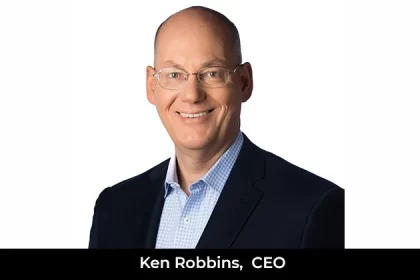In a rapidly evolving business landscape, the ability to attract and retain top legal talent has become a critical differentiator for companies across industries. Legal departments are no longer viewed as cost centers; they are now strategic partners influencing corporate governance, compliance, and growth initiatives. For CEOs, staying ahead of recruitment trends in the legal sector is essential to ensuring that their organizations remain both compliant and competitive.
The demand for legal professionals is rising, but so is the complexity of hiring them. From shifting candidate expectations to the impact of technology, CEOs need to recognize the dynamics shaping today’s legal talent market.
Why Legal Talent Recruitment Matters for CEOs
Corporate legal teams handle everything from contract negotiations and regulatory compliance to litigation strategy and intellectual property protection. As regulations increase globally and businesses face new challenges in areas like data privacy and ESG compliance, legal expertise has become indispensable.
Without the right talent, companies risk exposure to costly disputes, regulatory penalties, and reputational damage. CEOs who prioritize legal recruitment position their businesses to operate confidently, adapt to changes, and seize opportunities with minimal legal risk.
Trend 1: Rising Demand for In-House Counsel
One of the most significant recruitment shifts is the growing preference for in-house legal teams. Companies are seeking legal professionals who not only understand the law but also bring industry-specific knowledge and business acumen. These professionals are expected to collaborate closely with leadership, offering strategic advice that balances compliance with innovation.
The role of in-house counsel is expanding beyond traditional tasks. They are now involved in shaping corporate strategy, evaluating mergers and acquisitions, and overseeing risk management. CEOs should be prepared to invest in attracting experienced counsel who can bridge the gap between legal compliance and business objectives.
Trend 2: Competition for Specialized Expertise
As regulations evolve, companies need legal experts with specialized knowledge. Areas such as cybersecurity, data privacy, environmental law, and international trade have emerged as high-demand fields. Organizations competing for top-tier specialists face a tight labor market, particularly when these skills intersect with emerging technologies.
This competition is not limited to law firms. Corporations themselves are vying for candidates who can handle complex, cross-border challenges. Working with a premier legal recruiting firm gives CEOs access to networks of highly qualified candidates who may not be actively seeking new roles but are open to strategic opportunities.
Trend 3: Technology in Legal Recruitment
Technology has transformed recruitment practices across industries, and the legal sector is no exception. Artificial intelligence tools now streamline candidate sourcing, resume screening, and even preliminary assessments. For CEOs, the rise of data-driven recruitment means faster hiring processes and more informed decision-making.
At the same time, technology allows recruiters to analyze labor market trends, track candidate engagement, and forecast hiring needs. CEOs should expect their HR and recruitment partners to leverage these tools to attract legal professionals who align with both current and future business strategies.
Trend 4: Shifting Candidate Expectations
Today’s legal professionals are not only evaluating compensation packages but also work-life balance, career development opportunities, and organizational culture. Remote and hybrid work models have become particularly important in attracting and retaining legal talent. Many candidates expect flexible arrangements that allow them to manage demanding workloads without sacrificing personal well-being.
CEOs must recognize that traditional recruitment strategies may no longer suffice. Offering growth opportunities, mentoring, and inclusive workplace cultures can significantly improve a company’s ability to secure top legal talent. Organizations that adapt to these expectations will be more competitive in a tight labor market.
Trend 5: Globalization and Cross-Border Recruitment
Global business expansion has increased the need for legal professionals who understand international regulations and cross-border transactions. Companies operating in multiple jurisdictions require legal teams capable of navigating complex international frameworks, from tax regulations to trade compliance.
Recruiting talent with global experience can be challenging, as the pool of qualified candidates is limited. Here again, specialized recruiting partners provide access to professionals with the expertise to manage international challenges. CEOs should view global legal recruitment as an investment in protecting and expanding their organization’s international footprint.
Trend 6: Diversity, Equity, and Inclusion in Legal Hiring
Diversity, equity, and inclusion (DEI) initiatives have become central to recruitment across industries, and the legal sector is no exception. Clients, regulators, and employees increasingly expect organizations to demonstrate commitment to DEI.
For legal departments, diversity brings broader perspectives, improved problem-solving, and stronger alignment with evolving societal values. CEOs who prioritize inclusive hiring practices not only meet external expectations but also strengthen their organizations internally. Partnering with recruiters who emphasize diversity ensures a pipeline of candidates who reflect these values.
Trend 7: Retention as a Recruitment Strategy
Attracting top legal talent is only part of the equation. Retaining it is equally important. High turnover among legal professionals disrupts operations and increases costs, as recruitment and training require significant investment.
Retention strategies must address compensation, career development, and workplace culture. CEOs should encourage mentorship programs, clear advancement pathways, and ongoing professional development opportunities. Legal professionals who feel valued and supported are far more likely to remain loyal to the organization.
The Role of Recruiting Firms in Navigating These Trends
The complexity of today’s legal recruitment landscape makes it difficult for internal HR teams to manage alone. A premier legal recruiting firm brings specialized knowledge, industry connections, and tailored strategies to help CEOs secure the right candidates.
These firms understand the nuances of legal hiring, from evaluating specialized skill sets to assessing cultural fit. They also have access to passive candidates—those not actively job searching but open to new opportunities. This network gives companies an advantage in a competitive market where top talent may never apply through traditional channels.
How CEOs Can Prepare for the Future of Legal Recruitment
Prioritize Legal Talent as a Strategic Asset
Legal teams are no longer just support functions—they are integral to strategy, compliance, and risk management. CEOs must view legal recruitment as part of long-term business planning rather than a reactive process.
Align Recruitment with Business Goals
The types of legal professionals needed will vary depending on business priorities. CEOs expanding into new markets may need international trade specialists, while those focusing on technology innovation may require cybersecurity and data privacy experts. Recruitment should always reflect the company’s strategic direction.
Foster Collaboration Between Leadership and Recruiters
CEOs should maintain open communication with recruiters, ensuring that they understand company values, culture, and long-term goals. This collaboration ensures that candidates not only meet technical requirements but also fit seamlessly into the organization.
Stay Agile in a Changing Landscape
Legal recruitment trends will continue to evolve as technology advances and regulations shift. CEOs must remain agile, ready to adapt strategies as new challenges emerge. Companies that stay informed and proactive will be best positioned to attract and retain top talent.










